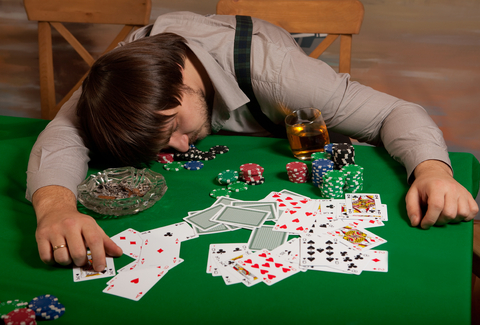Dec 02, 2013
Want More Poker Profits? Take Naps!
By RTR Dennis

When it comes to improving your poker game, most people think it revolves around complicated strategy concepts like range merging, elastic/inelastic ranges and the independent chip model. But there's actually something which can make you a much better poker player that's totally simple: taking naps.
Now we realize that napping may not rank high on the list of those poker players who down energy drinks like water in an effort to stay awake. But according to the Scientific American, naps have incredible benefits to our decision-making process, creativity, productivity and memory. Napping isn't the thing that provides a helpful brain boost either since meditation and nature walks can also give us a mental break.
The Scientific American cites freelance writer Michael Taft as a perfect example of what resting your brain can do. In the process of moving from L.A. to San Francisco, Taft traveled to a rural Massachusetts town for a three-month 'meditation marathon.' While there, he slept, practiced yoga, meditated and took nature walks. All of this combined to help him process a lot of backed-up thoughts and refresh his brain. "When you go on a long retreat like that there’s a kind of base level of mental tension and busyness that totally evaporates," Taft said.
 Of course, the average pro poker player doesn't have the luxury of taking three months away from the game. But one doesn't have to go to the extreme that Taft did during his meditation retreat. A poker player can still get clarity and mental benefits through a short break, visit to the park or quick nap. As the Scientific American writes, "Many important mental processes seem to require what we call downtime and other forms of rest during the day."
Of course, the average pro poker player doesn't have the luxury of taking three months away from the game. But one doesn't have to go to the extreme that Taft did during his meditation retreat. A poker player can still get clarity and mental benefits through a short break, visit to the park or quick nap. As the Scientific American writes, "Many important mental processes seem to require what we call downtime and other forms of rest during the day."
What's interesting is that the idea of downtime helping the brain was once regarded as a ridiculous notion. But in 1929, German neurologist Hans Berger proved that the brain is always active, whether we're awake or sleeping. During the latter point is when our brain can truly process some of the thoughts that it normally can't in a busy poker room.
Unfortunately, many poker players are still convinced that playing volume is far more important than rest or meditation. But if these players were to nap when they were tired or go for a walk when frustrated, they might avoid tilting and/or simple mental errors.
That said, next time you get weary or fed up at the poker table, don't be afraid to get away for a nap or quick break. Not only will this give your brain a rest, but it could also allow you to process information that's helpful to your game.
